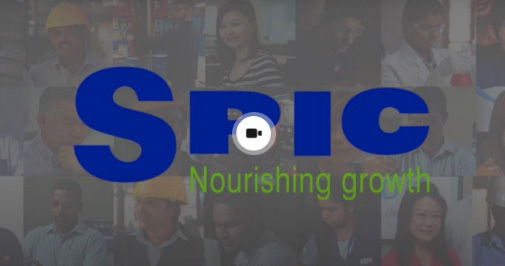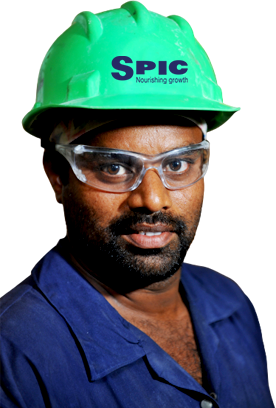How employees were the real heroes in SPIC’s battle against COVID-19
Southern Petrochemical Industries Corporation Ltd. (SPIC), the flagship company of the AM International group, is one of India’s first petrochemical companies with a focus on fertilizers. Today it is amongst the most recalled agri-brands in rural India, trusted by Indian farmers. The company also operates in other sectors like power, oil and natural gas, pharmaceuticals, and biotechnology.
Keeping employees and their families safe
When the pandemic broke out, the company’s focus was on keeping employees and their families safe. While carrying on with the business, there were a few issues which put the employees at risk of infection. Business transactions required personal follow-ups with partners and external vendors. Even before employees raised concerns about their safety, the company took several proactive measures towards their well-being.
The company planned all the production and handling activities in a safe and hygienic environment to ensure that employee health was protected. Regular and transparent company-wide communication helped to minimise panic,”
reveals E Balu, Chief Operating Officer, SPIC.
It was imperative to continue business operations as much as possible. But the government restrictions on the number of employees on premises resulted in some issues in production during the early phase of the lockdown. Specifically, start-up of the plants was delayed due to unavailability of personnel from the equipment vendors’ teams.
Marketing, distribution and market development activities required a lot of face-to-face meetings with dealers and farmers. This hindered the field activities, posing challenges in the initial phase of lockdown,”
says S Narayanan, Director, Marketing.
How SPIC prioritised safety for operational continuity
The company implemented the following measures to minimise physical intervention:
- Automation of doors and switches to reduce surface touch.
- Contactless payments across all business units.
- Integration of processes such as agro-based services in the ERP system so that minimum human intervention was required to run them.
- Installation of different types of software in administrative and factory offices to avoid face- to-face meetings and interactions completely.
The company took several steps to put together a comprehensive response to the crisis:
- A majority of SPIC’s employees live in SPIC townships, and the company enforced COVID-19 regulations mandated by the government within the township to reduce health risks.This was in addition to other customised guidelines and information transfer.
- Adequate provision of masks, hand sanitizers, temperature scanners, spO2 measuring instruments and office disinfection were ensured.
- The leadership was transparent in their communication with employees. They took charge of the situation quickly and took swift, decisive actions. The leaders were actively involved in framing guidelines, dynamically revising and executing them. The employees responded positively to all these initiatives.
- The management team coordinated with government authorities for the movement of materials and finished goods so that plants could continue operations, and goods could be delivered to the market.
Employees were the real champions
Employees were disciplined and vigilant when it came to practising safety measures. They campaigned for protective measures in the company township. The staff implemented several community service programs to provide essentials and sanitary kits to the lesser privileged members of the society.
CSR programs in coordination with the government authorities were a major part of our strategy to balance society and business needs,”
reveals K Gopalakrishnan, Vice President - Corporate Affairs, SPIC.
Balancing short-term and long-term strategies
Employees adapted quickly to the new ways of working to ensure that production and collections were maximised. The team consisting of the Medical Centre, Administration & HR was involved at various levels to keep the organisation running as smoothly as possible by implementing guidelines and regulations. Wherever required, ‘work from home’ was practised in the interest of employee health.
Devising a Plan B is not an option anymore. K R Anandan, Chief Financial Officer, SPIC, says
Since government subsidy receipt and market collections were not coming in time, which created working capital challenges, the targets were affected. In addition, the project activities were going on in full swing, requiring meticulous planning for finance to maintain project schedules.”
Though IT is a crucial enabler at SPIC, the company realised the need to leverage its IT capacity for various processes and conduct meetings online. Flexible sourcing and inventory management were devised. The pandemic situation has created a shift in cultural and structural mindsets.
SPIC aims to balance short-term and long-term strategies that will equip the company to survive the business downturn. It has also prepared the company to build the right framework that can make the most of the redefined business environment of the future.




